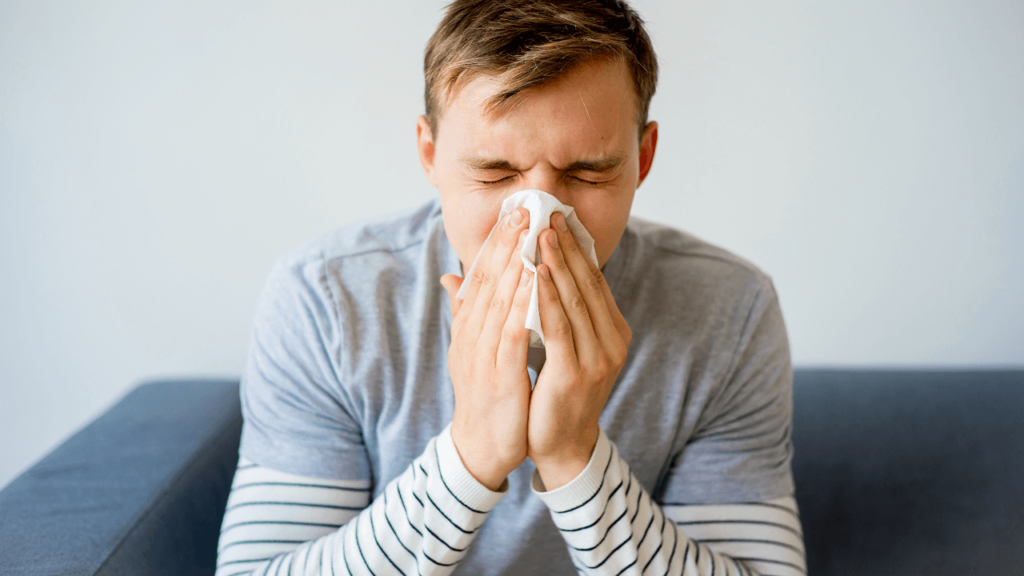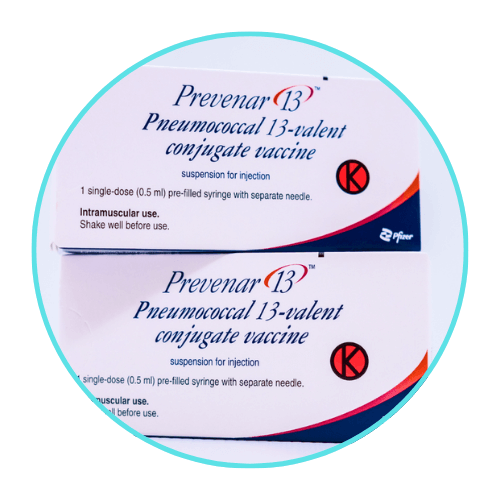
Visiting Bali is meant to be a time for sunshine, beaches, and relaxation — not sneezing, coughing, or feeling feverish. However, even in paradise, it’s not uncommon for travelers to experience symptoms of cold and flu. The excitement of travel, changes in climate, and exposure to different germs can take a toll on your immune system. When you move between the cool air of air-conditioned rooms and the humid, tropical heat outside, your body can struggle to adjust, making you more susceptible to respiratory infections. Add in factors like jet lag, dehydration, and physical exhaustion, and it becomes clear why even the healthiest tourists can catch a cold during their Bali adventure.
Unfortunately, Cold and Flu in Bali are more common than many visitors realize, especially during the rainy season when viruses tend to spread more easily. These illnesses can quickly turn a relaxing getaway into a frustrating experience filled with fatigue, sore throat, and discomfort. But the good news is that with the right knowledge and care, you can manage the symptoms effectively and prevent them from coming back. Understanding what causes cold and flu, recognizing early warning signs, and knowing your treatment options — including modern wellness solutions like IV drip therapy — can make all the difference. With a little awareness and proactive prevention, you can stay healthy, energized, and ready to enjoy every beautiful moment that Bali has to offer.
What Causes Cold and Flu Bali

The common cold and influenza (flu) are both viral infections that primarily target the upper respiratory tract, including the nose, throat, and sinuses. While these illnesses can occur anywhere in the world, in Bali, the tropical climate presents unique challenges that make people more prone to catching them. The constant movement between cool, air-conditioned environments — such as hotels, cars, or restaurants — and the warm, humid outdoor air creates sudden temperature fluctuations that can stress the body and irritate the respiratory system.
Moreover, Bali’s role as a global travel hub means visitors are frequently exposed to a mix of viruses from different regions, increasing the likelihood of infection, especially for those whose bodies are not accustomed to the local environment or pathogens.
Beyond environmental factors, lifestyle and travel-related stress can also weaken the body’s natural defenses. Long flights, irregular sleep patterns, and dehydration — common among travelers — all play a part in lowering immunity. When combined with the physical demands of exploring Bali’s attractions under the tropical sun, these factors can leave you more susceptible to catching a cold or flu. While the common cold tends to produce mild symptoms like nasal congestion and sore throat, influenza can lead to more severe complications such as high fever, muscle aches, and even respiratory distress. This makes it essential for visitors, especially those with existing health conditions, to take preventive measures and recognize symptoms early to ensure quick recovery and avoid disruptions to their vacation.
Symptoms of Cold and Flu
Recognizing the symptoms of cold and flu early is key to managing the illness and speeding up your recovery, especially when you’re far from home. The common cold usually begins with mild discomfort — a scratchy throat, runny or stuffy nose, sneezing, and a light cough — and tends to develop gradually over a few days. You might feel a bit tired or sluggish, but most symptoms remain manageable. The flu, on the other hand, strikes much more suddenly and often feels more severe. It typically comes with a high fever, chills, intense body aches, headaches, and overwhelming fatigue that can make even simple activities feel exhausting.
In more serious cases, it may also cause nausea or vomiting, especially in children or those with weakened immune systems. If your symptoms become worse, persist for more than a week, or are accompanied by difficulty breathing or chest pain, it’s important to seek professional medical care. Prompt diagnosis ensures that more serious conditions like pneumonia or dengue fever — which can sometimes mimic flu symptoms in Bali’s tropical climate — are ruled out, allowing for the right treatment and a faster, safer recovery.
Treatment for Cold and Flu Bali

Most cases of cold and flu are considered self-limiting illnesses, meaning they generally improve on their own with adequate rest, proper hydration, and balanced nutrition. Giving your body time to recover is essential, as your immune system naturally works to fight off the infection. Simple home remedies such as warm fluids, herbal teas, and steam inhalation can ease congestion, while over-the-counter medications may help relieve symptoms like fever, sore throat, or body aches. Maintaining good nutrition — including foods rich in vitamin C, zinc, and antioxidants — also supports faster healing. However, it’s important not to ignore your body’s signals. Pushing yourself to keep up with vacation activities while your immune system is compromised can prolong recovery or make your symptoms worse.
When you’re on vacation in Bali, being sick can quickly derail your plans — missing out on tours, beach days, and local experiences. That’s where IV drip therapy comes in as a fast and effective solution. Many wellness clinics across Bali now offer IV vitamin infusions, designed to replenish fluids, electrolytes, and vital nutrients directly into your bloodstream for immediate absorption. This therapy helps accelerate recovery by restoring hydration, reducing fatigue, and boosting your immune response. Whether you’re dealing with lingering cold and flu symptoms or simply feeling drained after travel, an IV drip can help you bounce back quickly and feel revitalized — ready to continue exploring the island and making the most of your Bali getaway.
IV Drip as a Solution for Cold and Flu
An IV drip therapy is one of the fastest and most effective ways to combat the symptoms of Cold and Flu Bali. The infusion usually contains a blend of vitamin C, B-complex, zinc, and other essential nutrients that help strengthen your immune system and fight infection.
Unlike oral supplements, IV therapy delivers nutrients directly into your bloodstream, ensuring maximum absorption and quicker results. Many travelers and locals use IV therapy not only as a treatment but also as a preventive measure — especially before or after long flights, or during Bali’s rainy season when colds and flu are more frequent.
How to Prevent Cold and Flu Bali
Prevention is always better than cure. To stay healthy during your time in Bali:
- Stay hydrated: The tropical heat can quickly cause dehydration, which weakens your immune response.
- Get enough sleep: Proper rest helps your body recover and stay resilient.
- Avoid sudden temperature changes: Don’t move abruptly from cold air-conditioned rooms to hot outdoor environments.
- Eat nutritious foods: Fresh fruits and vegetables rich in vitamins can strengthen immunity.
- Maintain hygiene: Wash your hands frequently and avoid touching your face.
The Role of Vaccination

Vaccinations are a cornerstone of preventive health, especially for travelers visiting tropical destinations like Bali. In environments where climate and exposure risks can vary year-round, vaccines provide essential protection against respiratory infections that could disrupt your trip. Two of the most important vaccines to consider are the Influenza Vaccine (Vaxigrip) and the Pneumonia Vaccine (Prevenar). Together, they help safeguard your health, reduce the risk of severe illness, and ensure you can fully enjoy your Bali experience without unnecessary setbacks.
Influenza Vaccine (Vaxigrip)

The Influenza Vaccine (Vaxigrip) is designed to protect against the most prevalent and active flu viruses circulating each year. It works by stimulating your immune system to recognize and respond quickly if exposed to these viruses, significantly lowering your risk of infection. Even if you do contract the flu, being vaccinated helps minimize the severity and duration of symptoms, leading to faster recovery and less risk of transmission to others.
This vaccine is particularly beneficial for travelers, as exposure to new environments, varying climates, and large groups of people can increase the chance of infection. Unlike temperate countries that experience distinct flu seasons, Bali’s tropical climate allows flu viruses to circulate throughout the year. Therefore, maintaining consistent immunity through annual influenza vaccination is one of the most effective ways to stay protected. Whether you’re a tourist, digital nomad, or long-term resident, getting the flu shot helps you stay healthy and active — ready to enjoy every part of your journey in Bali.
Pneumonia Vaccine (Prevenar)

The Pneumonia Vaccine (Prevenar) provides strong protection against Streptococcus pneumoniae — a bacteria responsible for serious respiratory infections, including pneumonia, meningitis, and sinus infections. Pneumonia can develop as a complication of influenza, particularly in vulnerable individuals such as older adults, children, and those with weakened immune systems or chronic health conditions.
For travelers spending extended periods in Bali or those who are more susceptible to respiratory infections, this vaccine offers an important additional layer of defense. It reduces the risk of severe illness, hospital visits, and long recovery times — all of which can disrupt your plans or affect your quality of life while abroad. By combining the Pneumonia and Influenza vaccines, you create a strong, comprehensive shield against two major causes of respiratory disease.
Stay Protected and Travel with Confidence

Getting vaccinated before your trip to Bali is a simple yet powerful step toward maintaining good health. The Influenza and Pneumonia vaccines not only protect you from illness but also help reduce the spread of infections within the community. Whether you’re coming for a short holiday or planning a longer stay, these vaccines help ensure your time in Bali remains focused on exploration, relaxation, and wellness — not unexpected trips to the doctor. Cold and Flu Bali may seem minor, but they can significantly affect your travel experience. By understanding their causes, recognizing the symptoms, and knowing how to treat and prevent them, you can ensure a smoother, healthier stay.
Whether through proper hydration, IV drip therapy, or timely vaccination, taking care of your immune system is the key to enjoying all that Bali has to offer — from sunrise beaches to jungle adventures — without being slowed down by illness.
FAQ



